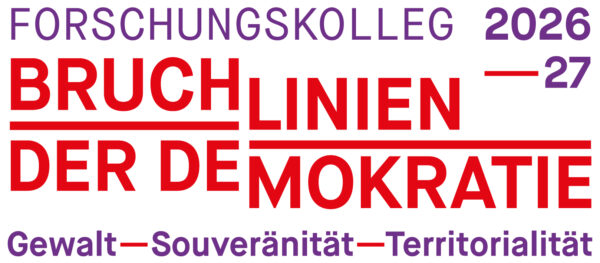International Law in the Face of Absurdity
Learning from Camus’ Sisyphus
On this day, 80 years ago, the UN Charter entered into force, just months after World War II had ended. The world was in ruins, exhausted by war, and there was a sense of relief, hope, and determination to build a system that would prevent such devastation from happening again – through international law. The Charter was a symbol for humanity’s collective promise to replace war with duties, dialogue and diplomacy. Today, the gap between this promise and the grim realities seems to widen. Far from being the backbone of an international world order, international law today often appears sidelined, ignored, or instrumentalized. In light of the irrational behavior of various actors and the large gap between their conduct and the rules of international law, the current situation can aptly be described as “absurd”: contrary to all reason and common sense.
For many international lawyers – whether scholars, practitioners, or students – this situation is not merely an intellectual challenge. It strikes at the core of their professional identity. The law they study, defend, and believe in is routinely trampled underfoot. For young international lawyers especially, disillusionment looms large. What is the point of being an international lawyer in times when absurdity, rather than order and rules, determines the course of the world? This is a question that many international lawyers are currently grappling with. In doing so, they deal with the situation in very different ways, wavering between hope and resignation, between confidence and despair, between business as usual and reimagination, between utopia and dystopia.
We suggest an attitude towards the currently faced absurdity that is characterized by neither of those mental states. When it comes to dealing with the absurd, a crucial reference that may help international lawyers retrieve meaning in their discipline is French philosopher Albert Camus. Through his works, Camus illustrated a path to maintain a dignified and humane attitude in the face of the evident absurdity of the world, most explicitly in “The Myth of Sisyphus”, first published in October 1942 – exactly three years before the UN Charter’s entry into force. By drawing on Camus’ redefinition of Sisyphus, we seek to offer international lawyers a stance that does not respond to the (current) absurdity with either optimism or pessimism, and thus does not lose itself in either hope or despair. Instead, we suggest facing absurdity with sober and continuous resistance.
Facing the Absurd with Camus
Camus begins from a deceptively simple observation: the world does not meet our expectations. Human beings long for clarity, order, and meaning. Yet the world, in its silence and unreasonableness, refuses to answer. This confrontation – between human desire and the world’s indifference – is what Camus calls the absurd.
“The absurd,” he writes, “is not in man […] nor in the world, but in their presence together.” It is not simply that the world is irrational, nor that humans are misguided. Rather, the absurd emerges from the gap between our longing for unity and the fragmentation of reality. This gap cannot be bridged. Attempts to overcome it by appealing to metaphysical comfort, to history’s supposed arc or to illusions of progress, are what Camus calls “philosophical suicide.”
++++++++++Advertisement++++++++++++
Call für Fellowships im Historisch-Soziologischen Forschungskolleg „Bruchlinien der Demokratie: Gewalt – Souveränität – Territorialität“ des Hamburger Instituts für Sozialforschung (HIS) zum Thema „Excessive State Power and State Killings in Democracies“.
Bewerbungsfrist: 03.11.2025 / Kontakt: Carolin Müller bruchlinien@his-online.de
Vom 12.-13. März 2026 wird am HIS eine von Dieter Gosewinkel und von Wolfgang Knöbl organisierte internationale Konferenz zum Thema stattfinden.
Infos zu Forschungskolleg und Call für Fellowships finden Sie hier: https://www.his-online.de/forschung/fault-lines-of-democracy-historical-sociological-research-hub/
++++++++++++++++++++++++++++++++
Importantly, the recognition of the absurd does not lead to nihilism. To recognize the absurd is not to give up, but to live without illusion. Camus insists that one must reject both false hope and resignation. Hope promises a future resolution that will never arrive; resignation accepts defeat and robs life of meaning. The task, instead, is to confront the absurd, and to live with it.
From this recognition flow three consequences: revolt, freedom, and passion. Revolt is the refusal to submit, the insistence on living and acting in spite of futility. It “gives life its value. Spread out over the whole length of a life, it restores its majesty to that life.” Freedom arises from the rejection of illusions: if the future holds no guarantee, one is free to act without being bound by it. Passion means embracing life in its intensity, without demanding that it be justified by ultimate meaning. To illustrate this stance, Camus turns to Greek mythology.
Sisyphus Reconsidered: The Absurd Hero
The fate of Sisyphus usually has very negative connotations. Sisyphus, punished by the gods for his defiance, is condemned to push a heavy rock up a mountain, only for it to roll back down each time he nears the summit. For eternity, he must repeat this futile task. Traditionally, the myth is a story of despair: there can be no more dreadful punishment than endless, meaningless labor.
International lawyers may occasionally feel reminded of their own fate when they hear this story (cf. e.g. Schehr). The current disregard and impotence of international law and its institutions show that hard-won progress is often undone by major setbacks. As a result, the effort to uphold and further develop international law is perceived as a futile and hopeless exercise. This is the situation in which international lawyers, like Sisyphus, stand at the foot of the mountain with the stone they must once again push upward. They imagine what an ideal international (legal) order might look like, and melancholy and despair may take hold of them. “This is the rock’s victory, this is the rock itself.” However, as von Bernstorff (p. 1015) indicates, they feel compelled to keep engaging in this routine in order to maintain their professional identity.
Despite the seemingly obvious misery of Sisyphus’ fate, Camus famously gives Sisyphus a positive spin. For Camus, Sisyphus is the absurd hero. The key moment, he suggests, is not the ascent but the descent. The hour of going down to the stone which returns as surely as Sisyphus’ suffering is, according to Camus, “the hour of consciousness. At each of those moments when he leaves the heights and gradually sinks towards the lairs of the gods, he is superior to his fate. He is stronger than his rock.” For Camus, it is clear that even if the descent is sometimes performed in sorrow, all “Sisyphus’ silent joy is contained therein. His fate belongs to him. His rock is his thing.” He does not hope for salvation; he does not resign himself to defeat. Sisyphus revolts against absurdity. In this revolt lies freedom. Sisyphus is no longer crushed by his labor because he owns it. “One must imagine Sisyphus happy.”
Learning from Sisyphus
This perspective provokes reconsideration of the self-image and self-perception of international lawyers (cf. also von Bernstorff and Stahn). Camus’ reading of Sisyphus suggests that international lawyers must accept that international law has never been able, is not able and will never be able to save humanity from hell everywhere at all times. It will fail again and again. But that does not mean it would not be worth trying to uphold it and to develop it further. Perhaps, this is precisely how the discipline of international law ought to be conceived. Camus’ Sisyphus shows that dignity does not depend on victory, but on persistence. Admittedly, this is not a cheerful undertaking. As Camus warns, recognizing the absurd comes not without a price. Someone who “has become conscious of the absurd is forever bound to it” and “has ceased to belong to the future”. Yet, that “is natural” and shifts the focus to what we can do in the present.
++++++++++Advertisement++++++++++++
PhD position in Sustainability Law
How to transform the law to actively adapt forest ecosystems in Germany and Canada to climate change? The Chair for Transformation towards Sustainable Energy Systems/Sustainability Law is looking to fill a doctoral position (65%, 3.5 years) in an international and interdisciplinary team as soon as possible. You will conduct comparative legal research in Germany and Canada (including a research stay in Canada). We welcome applications from Germany and abroad (especially from Canada and the USA)!
Find further information and apply here until October 31, 2025.
++++++++++++++++++++++++++++++++
International lawyers, like Sisyphus, must recognize the absurdity of their task without succumbing to despair – instead, they have to “use up everything that is given.” Achieving everlasting peace is not their task; their work lies rather in continuously revolting against a world inherently packed with violence and cruelty, against an international community in which power politics, inequalities and unfairness will always have their place. Their revolt – the continuous defense and development of international law in the face of setbacks – is valuable in itself, regardless of the fulfillment of promises that lie beyond their personal sphere of influence. Action matters more than goals. This stance may allow international lawyers to engage with their discipline freely and passionately, even in the face of the absurd.
On the 80th anniversary of the UN Charter, the crisis of international law – including the Charter itself – is real. The gap between promises and reality is wide, and likely to remain so. But this is not a reason to give up. It is, on the contrary, an invitation to embrace a new way of conceiving the discipline of international law. The rock will always roll back down. But the act of pushing it remains a declaration of revolt and of freedom. The rock is heavy, but it is ours. And one can imagine the international lawyer, like Sisyphus, as happy.
The authors write in their personal capacity. The views expressed in this post are their own and not those of their employers.
*
Editor’s Pick
by EVIN DALKILIC

Those who shy away from open resistance do not, by any means, have to remain inactive. Jigsaw puzzling as a subversive act is underrated, to say the least. Even the US Supreme Court recognised: jigsaw puzzling is not a game. We spend countless hours doing it. And for what? To eventually destroy everything and waste our time all over again. From a capitalist point of view, this is a complete waste of time. It is no coincidence then that jigsaw puzzles have become particularly popular in times of economic crisis (Williams 2004, p. 181). So if disruption encourages jigsaw puzzling, doesn’t jigsaw puzzling also encourage disruption?
*
The Week on Verfassungsblog
summarised by EVA MARIA BREDLER
We can only wonder if Camus is being read at the European Court of Human Rights. Either way, the judges there confront the erosion of international legal safeguards with sober and steady resistance. SÍOFRA O’LEARY, the former President of the Court, and YONKO GROZEV (ENG), a former Section President, know the ECHR inside out and highlight the tools available to the Court to respond even more effectively to the rollback of democracy and the rule of law in the future.
Universities also need to think about effective responses to said challenge – especially in the United States, where funding and higher education structures have been under attack long before Trump’s administration. HANS MICHAEL HEINIG (GER) reminds us that some states have been rolling out similar higher education agendas for years. Against this backdrop, he calls on universities to revert to and defend their specifically epistemic function, rather than confusing it with a political one.
The tension between political and epistemic function was also alive last week in Leipzig, where the German Federal Administrative Court delivered a landmark ruling on public broadcasting. The Court linked the licence fee, which is paid by the public, to the long-term diversity and balance of their programming, making diversity enforceable in administrative courts. This “institutionalised diversity monitoring” may calm the ongoing criticism of public broadcasting, but TOBIAS MAST and WOLFGANG SCHULZ (GER) warn it will inevitably overwhelm the administrative judiciary.
Another debate continued from last week, when HUBERTUS BUCHSTEIN (GER) defended the lottery system as a fair way to draft soldiers. Many voices, however, consider such a lottery unconstitutional. NAVID JUNGMANN (GER) disagrees: a limited, needs-based lottery draft is compatible with the German Basic Law.
Some also criticised the European Parliament of “pick and choose”, namely when it comes to the weakening makeover of the EU Supply Chain Act. On Wednesday, the controversial compromise temporarily failed in the European Parliament. A slim majority voted against opening final negotiations with member states – a “fatal mistake,” exclaimed Merz. The German government wants to relieve companies of the law’s bureaucratic burden and scrap reporting requirements. MARKUS KALTENBORN and RICARDA RAHN (GER) warn that this would mark a troubling step backwards for international protection standards. The European Parliament will vote on the proposal again in November.
IURIE PATRICHEEV (ENG) warns against backsliding on international protection standards in Kyrgyzstan. President Sadyr Japarov has proposed reinstating the death penalty following heinous crimes against women and children. Doing so would not only damage Kyrgyzstan politically, Patricheev argues, but also violate its human rights obligations, undermining its role as a democratic outlier in Central Asia.
++++++++++Advertisement++++++++++++
Five Academy in Exile Fellowships in Germany
Academy in Exile is pleased to announce its 2025 fellowship program funded by the Mellon Foundation. AiE invites scholars at risk to apply for five fellowships (12 months each) at TU Dortmund University and the Institute for Advanced Study in the Humanities (KWI) Essen. Eligible are scholars from any country who have a PhD in the humanities, social sciences, or law, and who are at risk because of their academic work and/or civic engagement in human rights, democracy, and the pursuit of academic freedom. The application deadline is 15 November 2025.
If you have any questions, please send an email to applications.aie.kuwi@tu-dortmund.de.
++++++++++++++++++++++++++++++++
A legally troubling experiment is also looming in Ukraine, with the planned judicial reform. In its latest opinion, the Venice Commission cautions against reformist overreach in Ukraine, warning that the country’s judicial reform risks becoming disproportionate experimentation. ANDRII NEKOLIAK (ENG) agrees and argues that the judiciary reform must proceed in a more measured way.
The Venice Commission was equally critical of Slovakia after parliament had amended the constitution, introducing a “national identity” clause and a series of measures framed as “protecting the family” – primarily excluding LGBTIQ+ people. The Commission flagged both procedural and substantive concerns. MAX STEUER (ENG) predicts that most constitutional provisions will remain largely symbolic. The real conflict, he argues, will unfold over the meaning and scope of the amendment, with the Constitutional Court playing a decisive role.
Slovakia thus joins a growing number of EU member states using law to target LGBTIQ+ people. Against this backdrop, the European Commission has released its new LGBTIQ+ Equality Strategy for 2026 to 2030. Yet ALESSANDRO MARCIA (ENG) argues that the strategy falls short of adequately protecting queer EU citizens.
Gaps in protection are more evident in climate policy. Many states classify agricultural emissions as “hard to abate” and therefore shy away from ambitious reduction targets in the sector. KATHARINA NEUMANN (ENG) explains why shifting the burden to other sectors contradicts the ICJ Advisory Opinion on Climate Change.
This week, our “Defund Meat” symposium (ENG) met its end. MINNA KANERVA explains the framework of “meat consumption corridors” and how it can help bring down meat consumption. FELIX AIWANGER explores the feasibility of a cap-and-trade system designed to push meat products closer to their true price. Concluding the debate, JEFF SEBO argues that a global ban on industrial animal agriculture by 2050 is necessary to address massive, transboundary harm to humans, animals and the environment.
And so, every week we keep on rolling the rock up and down the hill. Sometimes we wish there were a freight lift to carry that heavy thing effortlessly to the top (and even a sparkling prize back down). But the happy Sisyphus bears the burden, without ever losing his sense of humour.
*
That’s it for this week. Take care and all the best!
Yours,
the Verfassungsblog Team
If you would like to receive the weekly editorial as an e-mail, you can subscribe here.






